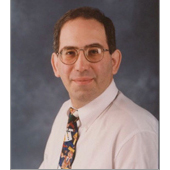Dr. Paul R. Gordon MD
Hematologist (Pediatric) | Pediatric Hematology-Oncology
1717 S Orange Ave Suite 100 Orlando FL, 32806About
Dr. Paul Gordon is a pediatric hematologist practicing in Orlando, FL. Dr. Gordon specializes in treating children that have a blood disease or cancer. Such blood diseases include disorders of red blood cells, white blood cells and/or platelets. The types of cancers that Dr. Gordon treats include leukemias, lymphomas and certain tumors. Dr. Gordon can also treat bleeding disorders in children. Pediatric hematologists can be found in childrens hospitals, community hospitals, university medical centers and more.
Education and Training
University of the West Indies Faculty of Medical Sciences 1993
Board Certification
PediatricsAmerican Board of PediatricsABP- Pediatric Hematology-Oncology
Provider Details
Treatments
- Anemia
- Brain Tumor
- Bone Cancer
- Down Syndrome
- Birthmark
- Acute Myeloid Leukemia (aml)
- Immunodeficiency
- Leukemia
- Dermal Aesthetics
- Extra Corporeal Shockwave Therapy
- Natural Hormone Balancing
Dr. Paul R. Gordon MD's Practice location
Practice At 1717 S Orange Ave Suite 100
1717 S Orange Ave Suite 100 -Orlando, FL 32806Get Direction
Dr. Paul R. Gordon MD's reviews
Write ReviewPatient Experience with Dr. Gordon
Recommended Articles
- Eye Twitching: Symptoms and Solutions
Eye twitching is the repetitive, involuntary blinking or spasm of the upper eyelid. Also known as blepharospasm, twitching affects the muscles of both eyes. Some of the most common causes of eye twitching include fatigue, stress, and caffeine. Twitching is usually painless and goes away on its own...
- What Is Infectious Bursitis?
Human beings have approximately 150 bursae in their bodies. These are sac-like fluid filled organs that are located between the joints in muscles, bones, and tendons. Bursae are mostly found in the knee, buttocks, ankle, shoulder, or hip. They are also the most commonly affected areas. Bursitis is a...
- Study Finds 3% of Pediatric Non-Hodgkin Lymphoma Cases Are Transplant Recipients
Lymphoma is a blood cancer that affects both children and adults.Lymphoma begins its growth in the lymphatic white blood cells of the lymph system. This system is a major warrior in fighting off infections and diseases. It is part of the body’s immunity team.The lymph system loops throughout the...
- Purpura
PurpuraPurpura refers to purple-colored spots that are usually seen on the skin, including mucous membranes and other organs. It is also called skin hemorrhages or blood spots.Purpura is usually recognized when there is pooling of blood under the skin due to ruptured small blood vessels. The size of...
- How Is Leukemia Diagnosed?
Leukemia in its early stages may present no signs or symptoms, as these only appear when the leukemia cells have taken over a large number of normal blood cells. A person with leukemia is very lucky indeed if early-stage detection occurs incidentally, through a routine blood test or one done for...
- Potential Causes of Leukopenia
IntroductionA decrease in the number of white blood cells (WBCs) is referred to as leukopenia. There are several causes for leukopenia. It may be due to certain drugs, cancer, radiation and chemotherapy for cancer, stem cell transplant, surgery, steroids, or autoimmune disorders. The immune system...
Nearby Providers
- Mrs. Amy Amundson Smith MD92 W MILLER ST ORLANDO FL 32806
- Dr. Lloyd N. Werk MD, MPH1717 South Orange Avenue Orlando Florida 32806
- Dr. Jessica R. Roberson MD1717 S. Orange Ave. Orlando FL 32806
- Dr. Judith E. Wall MD1717 S Orange Ave Orlando FL 32806
- Dr. Don E Eslin MD89 W Copeland Dr Orlando FL 32806
- Dr. Robert M Sutphin MD92 W Miller St Orlando FL 32806
Nearest Hospitals
ORLANDO HEALTHl
52 W UNDERWOOD ST ORLANDO FL 32806FLORIDA HOSPITALl
601 E ROLLINS ST ORLANDO FL 32803HEALTH CENTRALl
10000 W COLONIAL DR OCOEE FL 34761






